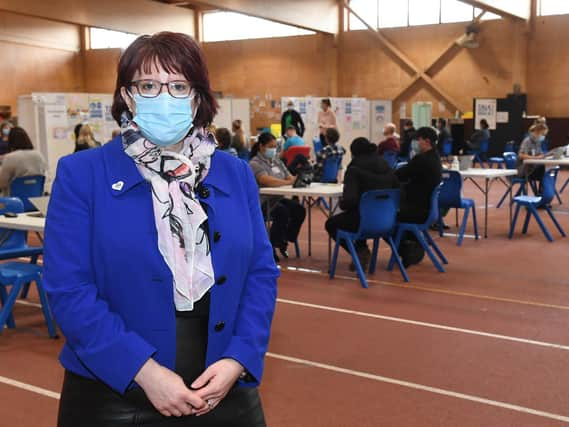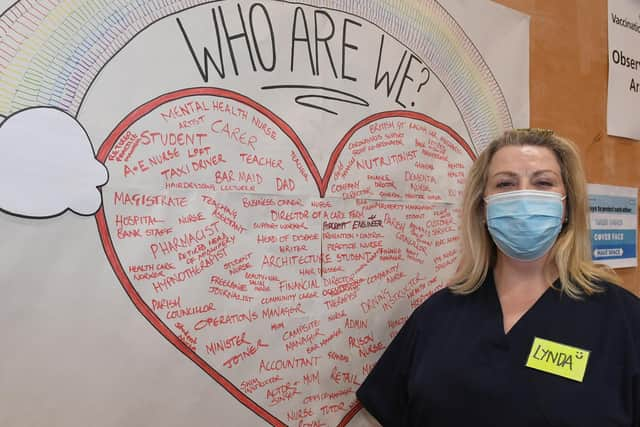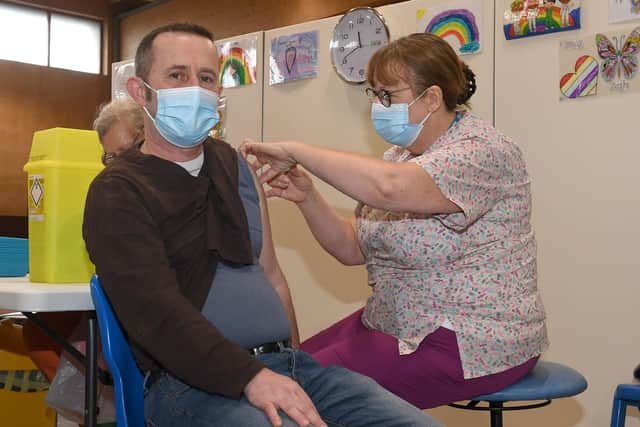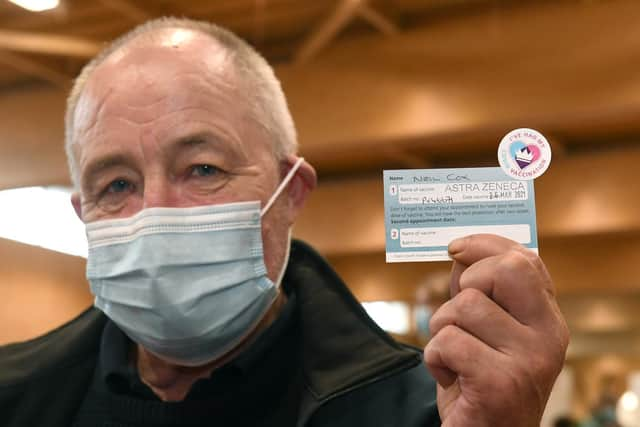CORONAVIRUS: Incredible team effort that has seen Boston centre hit 50,000 vaccinations


The landmark figure comes just two months after the site was opened as one of two vaccination hubs in Lincolnshire.
Rebecca Neno, Deputy Chief Nurse for NHS Lincolnshire CCG, has been involved with the vaccination roll out from the planning stage onwards, and described the achievement as “phenomenal”.
Advertisement
Hide AdAdvertisement
Hide AdIt comes as the whole county comes close to reaching 400,000 first dose vaccinations administered in total.


Rebecca spoke about how that incredible achievement came about, and the challenges that had to be overcome, sometimes with literally military precision, to bring Boston and the county to its current position.
“We are well on our way to ensuring our population is protected,” said Rebecca.
“I am in awe of the staff that work here at Princess Royal. I remember this vividly being an open sports hall and I remember thinking to myself ‘Oh my gosh’ at the effort ahead to turn it into a vaccination centre.
Advertisement
Hide AdAdvertisement
Hide Ad“This has been a true collaborative effort across the NHS, across our voluntary services, across our county council and across the Lincolnshire Resilience Forum coming together to really set up the site and start delivering.”


Rebecca said everyone involved is very aware of the importance of the programme, and getting it out to the population.
“This is about learning, to get the vaccine through the population as quickly as we can. Everyone on site here, whether it be our student nurses, our volunteers, our case staff are absolutely humbled to be playing a part in fighting Covid-19,” she said.
The vaccination programme continues to roll out rapidly across the UK, and by Thursday last week a total of 386,476 jabs had been given across Lincolnshire, and that figure is likely to be substantially higher when the latest figures are released tomorrow (Thursday).
Advertisement
Hide AdAdvertisement
Hide AdThat has been in large part down to the successful planning and Implementation of the vaccination programme across the county.


Rebecca says that was only accomplished with literal military precision, with the help of a hard-working and dedicated team of staff and volunteers,
“I’ve been working on this programme with a team – a very dedicated team – who have gone above and beyond what could be expected of any individual since the late summer,” she said.
“This has been months in the planning. Very early on, we were planning for a vaccine that we didn’t know the detail of, how it may be given, where it could be given, what temperature it needed to be kept at, what scale could we operate at, so in the very early days there were more unknowns than knowns.
Advertisement
Hide AdAdvertisement
Hide Ad“We were really fortunate to have a full-time military liaison officer, and he has been incredible, his guidance and support has been invaluable in helping us do something that the NHS has never done before in history.”
The health service was expert at setting up vaccination campaigns, but the logistics of setting up in buildings like the PRSA sports centre were beyond their normal experience, which is were the expertise of the military liaison proved invaluable.
Since the programme had started, the feedback from people using it had been, in the main, phenomenal, she said.
Staff at the centres take an individual approach with those coming to be vaccinated, and take the time to explain things to them if they are concerned or nervous.
Advertisement
Hide AdAdvertisement
Hide AdAsked how she would encourage people or groups who were reluctant to come forward, she stressed how vital the programme was for the whole community and outlined a stark choice.
“Covid-19 is a serious virus and it is a virus that can kill you. The vaccination on the other hand will not kill you, it will protect you from the virus,” she said.
“On that stark scientific evidence I would ask individuals to think about coming forward and having the vaccine, not only for themselves, because we do know there is mounting evidence now that this vaccine will also affect transmission and reduce transmission, so not only will you protect yourself, you will also protect those around you.”
She said they were taking different approaches as they worked through the age groups, and data was regularly being looked at to see where interventions were needed to encourage take-up/
Advertisement
Hide AdAdvertisement
Hide Ad“In the older age group, for example, for those who couldn’t attend the centre, vaccination teams could see them in their own home,” she said.
“We expect that as we move down the cohort the sort of services offered will need to change. It will be much more about working with those groups where hesitancy may be an issue and making sure they have access to correct information. This is the absolute key moving forward."